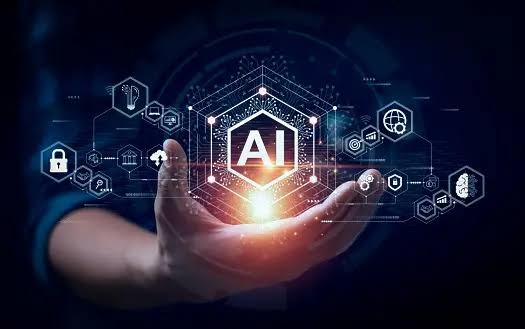As we move further into the 21st century, the influence of Artificial Intelligence (AI) is reshaping many industries, including higher education. MBA programs, traditionally grounded in strategic management, leadership, and economics, are now adapting to integrate AI technologies, offering new tools, methodologies, and opportunities for both students and educators. The impact of AI on MBA education is profound and multifaceted, offering significant advantages for both learning and teaching. This article explores how AI is transforming MBA programs and why future business leaders must embrace this technological shift.
1. Personalized Learning Experiences
One of the most exciting impacts of AI in MBA education is the ability to deliver personalized learning experiences. AI-powered platforms can analyze students’ learning styles, strengths, and weaknesses, tailoring the curriculum and resources to meet individual needs. For example, AI can identify when a student is struggling with specific concepts and offer targeted content, such as video tutorials, practice exercises, or additional reading materials.
Moreover, AI can adapt in real-time, providing a dynamic learning environment where students can progress at their own pace, ensuring they fully understand the material before moving on. This personalization helps improve learning outcomes and ensures that MBA students gain a deeper, more comprehensive understanding of business concepts.
2. Enhanced Data-Driven Decision-Making
MBA programs place significant emphasis on decision-making, strategy, and analytics. With the integration of AI tools and techniques, students can now analyze large datasets more efficiently and extract valuable insights. Business schools are incorporating AI-driven tools that allow students to work with real-time data to simulate market scenarios, forecast trends, and model business strategies.
Students are now learning how to leverage machine learning algorithms, predictive analytics, and data visualization techniques, all of which are becoming increasingly essential for modern-day decision-making in the business world. As future leaders, MBA graduates who are proficient in using AI to drive data-driven decisions will have a competitive edge in the job market.
3. Automation of Routine Administrative Tasks
AI has significantly improved the efficiency of administrative tasks in MBA programs, from streamlining admissions processes to automating grading and feedback. For instance, AI-powered chatbots can assist prospective students with questions about program offerings, deadlines, and admission requirements, providing immediate, accurate responses at any time.
Additionally, AI tools can assist professors with grading assignments, providing instant feedback to students on their work. This reduces the administrative burden on faculty members and allows them to focus more on teaching and mentoring. The automation of routine tasks enhances the overall experience for both students and faculty, leading to more efficient and effective MBA programs.
4. Virtual Classrooms and Remote Learning
In recent years, the demand for flexible learning options has increased, especially with the rise of online and remote education. AI-powered tools are enabling virtual classrooms and remote learning experiences that are just as effective as traditional in-person classes. Virtual assistants, powered by AI, can facilitate online discussions, monitor student participation, and provide personalized support to students in remote environments.
Moreover, AI can enable immersive learning experiences through virtual reality (VR) and augmented reality (AR), allowing MBA students to simulate real-world business challenges, such as managing virtual teams or running a business in a global marketplace. This makes MBA education more accessible and engaging, even for students who may not be able to attend on-campus programs.
5. AI in Business Simulations and Case Studies
AI has transformed the way MBA students engage with business simulations and case studies. Traditionally, case studies have been a cornerstone of MBA programs, where students analyze real-world business problems and come up with solutions. With AI, these simulations can become more sophisticated and realistic, incorporating real-time data, predictive models, and machine learning.
For example, AI-driven simulations can recreate market fluctuations, consumer behaviors, and supply chain disruptions, providing students with an interactive platform to test their decision-making skills. These AI-based tools also allow students to see the direct consequences of their actions in the simulation, giving them a deeper understanding of cause and effect in business decision-making.
6. AI-Powered Career Services and Job Matching
Career services in MBA programs are another area where AI is making a significant impact. AI-driven platforms can analyze the skills, experience, and preferences of MBA students to match them with suitable job opportunities. These platforms use algorithms to match candidates with employers based on data such as professional skills, industry preferences, geographic location, and previous work experience.
Additionally, AI tools can help students with resume optimization, interview preparation, and job search strategies by providing personalized advice and feedback based on the latest trends in the job market. This makes the job placement process more efficient and increases the likelihood of students securing positions that align with their career goals.
7. Emerging AI-Focused Curriculum and Specializations
As AI continues to permeate the business world, MBA programs are introducing AI-focused courses and specializations to prepare students for the changing landscape. These include subjects such as machine learning, natural language processing, data science for business, and AI ethics. Understanding the intersection of AI and business is crucial for MBA graduates who will lead organizations through the digital transformation process.
These courses not only help students develop technical skills but also teach them how to manage AI-driven projects, make ethical decisions surrounding AI technologies, and understand the potential of AI in various industries such as finance, healthcare, marketing, and supply chain management.
8. Improved Collaboration and Communication
AI tools are also enhancing collaboration and communication among MBA students. Collaborative platforms powered by AI can facilitate team projects, enabling students to work together efficiently, even if they are located in different parts of the world. AI can automate task assignments, track project milestones, and send reminders to ensure that deadlines are met.
Furthermore, AI-driven communication tools, such as virtual assistants and speech recognition software, help students communicate more effectively in global teams. This fosters cross-cultural collaboration and ensures that students are well-prepared for the increasingly globalized business environment.
9. AI for Ethical Decision-Making in Business
As AI plays a larger role in business, it raises critical questions regarding ethics, privacy, and accountability. MBA programs are incorporating AI ethics into their curriculum to ensure that future leaders understand the potential risks and benefits of AI technologies. Students are being taught how to create policies that govern the use of AI in business, particularly around issues such as data privacy, algorithmic bias, and transparency.
By addressing these ethical challenges, MBA programs are preparing graduates to make responsible decisions about AI deployment and use in their organizations, ensuring that they can lead with integrity in the age of technology.
10. AI in Research and Knowledge Discovery
AI is also transforming the way business research is conducted. With the help of AI-powered tools, MBA students and faculty can analyze vast amounts of data and generate new insights more quickly and accurately. AI-driven algorithms can process and identify patterns in data that might be missed by traditional research methods.
In research projects, students are using AI to conduct literature reviews, analyze case studies, and create predictive models. This not only accelerates the research process but also enhances the quality of the research outcomes.
Conclusion
The impact of Artificial Intelligence on MBA education is profound and far-reaching. From personalized learning experiences and enhanced decision-making capabilities to the automation of administrative tasks and the introduction of AI-focused curricula, AI is reshaping the way MBA programs are designed and delivered. As businesses continue to embrace AI technologies, future leaders equipped with AI knowledge and skills will be better positioned to navigate the rapidly evolving business landscape. MBA students and graduates who understand the potential of AI will have a significant advantage in their careers, whether they are managing companies, launching startups, or driving innovation in their industries.




